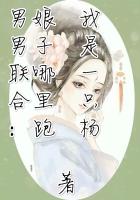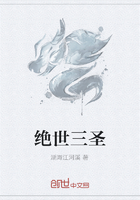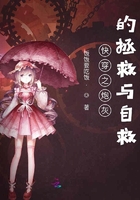At length there came an interruption to Hugh Fernely's love dream. The time drew near when he must leave Seabay. The vessel he commanded was bound for China, and was to sail in a few days.
The thought that he must leave the beautiful girl he loved so dearly and so deeply struck him with unendurable pain; he seemed only to have lived since he had met her, and he knew that life without her would be a burden too great for him to bear. He asked himself a hundred times over: "Does she love me?" He could not tell. He resolved to try. He dared not look that future in the face which should take her from him.
The time drew near; the day was settled on which the "Seagull" was to set sail, and yet Hugh Fernely had won no promise from Beatrice Earle.
One morning Hugh met her at the stile leading from the field into the meadow lane--the prettiest spot in Knutsford. The ground was a perfectly beautiful carpet of flowers--wild hyacinths, purple foxgloves, pretty, pale strawberry blossoms all grew there. The hedges were one mass of wild roses and woodbine; the tall elm trees that ran along the lane met shadily overhead; the banks on either side were radiant in different colored mosses; huge ferns surrounded the roots of the trees.
Beatrice liked the quiet, pretty, green meadow lane. She often walked there, and on this eventful morning Hugh saw her sitting in the midst of the fern leaves. He was by her side in a minute, and his dark, handsome face lighted up with joy.
"How the sun shines!" he said. "I wonder the birds begin to sing and the flowers to bloom before you are out, Miss Earle."
"But I am not their sun," replied Beatrice with a smile.
"But you are mine," cried Hugh; and before she could reply he was kneeling at her feet, her hands clasped in his, while he told her of the love that was wearing his life away.
No one could listen to such words unmoved; they were true and eloquent, full of strange pathos. He told her how dark without her the future would be to him, how sad and weary his life; whereas if she would only love him, and let him claim her when he returned, he would make her as happy as a queen. He would take her to the bright sunny lands--would show her all the beauties and wonders she longed to see--would buy her jewels and dresses such as her beauty deserved--would be her humble, devoted slave, if she would only love him.
It was very pleasant--the bright morning, the picturesque glade, the warmth and brightness of summer all around. Beatrice looked at the handsome, pale face with emotion, she felt Hugh's warm lips pressed to her hand, she felt hot tears rain upon her fingers, and wondered at such love. Yes, this was the love she had read of and thought about.
"Beatrice," cried Hugh, "do not undo me with one word. Say you love me, my darling--say I may return and claim you as my own.
Your whole life shall be like one long, bright summer's day."
She was carried away by the burning torrent of passionate words.
With all her spirit and pride she felt weak and powerless before the mighty love of this strong man. Almost unconscious of what she did, Beatrice laid her white hands upon the dark, handsome head of her lover.
"Hush, Hugh," she said, "you frighten me. I do love you; see, you tears wet my hand."
It was not a very enthusiastic response, but it satisfied him.
He clasped the young girl in his arms, and she did not resist; he kissed the proud lips and the flushed cheek. Beatrice Earle said no word; he was half frightened, half touched, and wholly subdued.
"Now you are mine," cried Hugh--"mine, my own peerless one; nothing shall part us but death!"
"Hush!" cried Beatrice, again shuddering as with cold fear.
"That is a word I dislike and dread so much, Hugh--do not use it."
"I will not," he replied; and then Beatrice forgot her fears. He was so happy--he loved her so dearly--he was so proud of winning her. She listened through the long hours of that sunny morning. It was the fifteenth of July--he made her note the day and in two years he would return to take her forever from the quiet house where her beauty and grace alike were buried.
That was the view of the matter that had seized upon the girl's imagination. It was not so much love for Hugh--she liked him.
His flattery--the excitement of meeting him--his love, had become necessary to her; but had any other means of escape from the monotony she hated presented itself, she would have availed herself of it quite as eagerly. Hugh was not so much a lover to her as a medium of escape from a life that daily became more and more unendurable.
She listened with bright smiles when he told her that in two years he should return to fetch her; and she, thinking much of the romance, and little of the dishonor of concealment, told him how her sad young mother hated and dreaded all mention of love and lovers.
"Then you must never tell her," he said--"leave that for me until I return. I shall have money then, and perhaps the command of a fine vessel. She will not refuse me when she knows how dearly I love you, and even should your father--the father you tell of--come home, you will be true to me, Beatrice, will you not?"
"Yes, I will be true," she replied--and, to do her justice, she meant it at the time. Her father's return seemed vague and uncertain; it might take place in ten or twenty years--it might never be. Hugh offered her ******* and liberty in two years.
"If others should seek your love," he said, "should praise your beauty, and offer you rank or wealth, you will say to yourself that you will be true to Hugh?"
"Yes," she said, firmly, "I will do so."
"Two years will soon pass away," said he. "Ah, Beatrice," he continued, "I shall leave you next Thursday; give me all the hours you can. Once away from you, all time will seem to me a long, dark night."













